Monday Morning Update 8/29/11
With much of the Northeast exposed to potential disruptions from Hurricane Irene, I’ve created a page for reports from the field. Leave a comment on that post or send your updates and I’ll keep the page current. Many folks will read this Saturday evening or Sunday, so I’m interested to hear what’s going on. Above is video of Coney Island Hospital being evacuated.
From NoHelp: “Re: Dell Services. Has laid off over 20 folks in their Meditech Solutions Group, with more to come across the legacy Perot Systems Healthcare. With Berk Smith departing, Meditech is not letting up on the C/S 6.0, which is killing MSG. Without competition, they are not able to break away from Meditech and say no to them on deals. Dell is getting less and less interested in that business because it costs a great deal to run, with a very high exec in Round Rock telling me the ROI isn’t there. They will be evaluating whether to keep it running in January.” Unverified.
From Ima Peon: “Re: Allscripts. Just sent a message telling employees to come early to ACE or drive in case your flight is cancelled. Nowhere does it say to think about your own family to ensure their safety during the most serious hurricane to hit the East Coast in years.” The conference starts Monday in Nashville. Hopefully the message sender didn’t feel the need to state the obvious – secure your family first and then take whatever transportation is available (at whatever extra company expense is required) to get to ACE on time if at all possible. In the mean time, I’m watching The Weather Channel with fascination – I’m pretty sure those hyper-excited reporters talking live from one eroding beach or another are being overly dramatic. Mrs. H just noticed that one looked fine until he saw that the camera was on him, then suddenly did a hugely exaggerated “the wind nearly blew me away” stumbling move as he recited the cliché phrase, “conditions are deteriorating.” On the beachhead was TWC veteran Mike Seidel, who provided the funniest TV moments ever during Hurricane Andrew in 1992 when he tried painfully to address the non-English speaking Miami audience in the most deadpan, white bread, C-student Spanish imaginable. I’m pretty sure he would die of starvation in a tacqueria (which is where I had some stupendous carne asada tacos for lunch, in fact). I think most of his South Florida viewers were laughing too hard to evacuate.
From The PACS Designer: “Re: Steve Jobs. His outlook is grim in this photo, taken Friday. TPD is praying for him and will miss his elegant product introductions once he is no longer with us. Here’s a slide show on his best moments.” I’m not running the photo (which I suspect is fake for various reasons that I’ll explain if that turns out to be the case) since I’d rather not remember him the way he looks in it. I’ve worked with a few pancreatic cancer patients and their outcomes were all about the same – 6-12 months of a fairly normal pain-free existence with no change in appearance, then a very fast, somewhat merciful slide to the inevitable conclusion. His diagnosis was made in 2004, so he has already exceeded my best guess. Nobody who knows him seems to like him much, but they all respect him. An authorized biography is due out early in 2012, which may be too late for him to see, but I’ll buy it.
From Mavrikg41: “Re: Epic. [hospital name omitted] was rejected by Epic in the evaluation process because Epic thought [CIO name omitted] was ‘going to get in the way of the success of the implementation.’ They called that out in the report to the hospital’s executives as to why Epic would not be a good fit at [hospital name omitted].” Unverified. I’ve left out the California hospital’s name, but it’s a vendor low blow to call out an hospital executive by name to his or her peers as an excuse for turning down their dozens of millions of dollars. Unless Epic is trying to get the CIO fired, why not just politely decline the business without naming names? It does seem that Epic’s model is occasionally somewhat anti-IT, with a fair number of CIOs leaving somewhere between selection and go-live. Once the Epic train gets rolling in a given hospital, you don’t want to get in front of it since frontline executives seem happy let Epic 20-somethings tell them how to run their business (especially the IT part) instead of listening to their own vastly more experienced people. One might therefore postulate that Epic is often chosen in an environment where both the existing IT systems and the people who maintain them are held in some degree of contempt, rightly or not.
From King Biscuit: “Re: HIStalk. It’s very slow to load at times.” It’s nearly always the problematic Internet Explorer that’s at fault, usually long-obsolete versions like IE6 or IE7, but that doesn’t stop some readers from sending me nastygrams like the server is slow or that all readers are having the problem (neither is true). I’m even more frustrated since the buggy, bloated IE was causing some users to not be able to pull up HIStalk at all a few months back, with the only solution being to program around it in a way that slowed the site down for everyone. I tested from work Friday with IE7, Chrome, Firefox, and Opera (all except IE were fresh installs with caches cleared). IE took at least five times as long as all the others to display the main HIStalk page, often getting ridiculously hung up and throwing out errors when displaying components such as Vince’s HIStory slides, YouTube videos, and sponsor ads. It did better once the page had been cached: IE7 took 18 seconds to display the page, while the others were all basically instantaneous (that was again the front page that holds five posts – the e-mail link is to a single post, which comes up faster). I just tried it with a cache-cleared Chrome on a plain old broadband connection and I was reading the post exactly five seconds after pasting in the URL. Solutions:
- Upgrade IE if you can. IE9 is current and IE10 is in beta.
- Download any other browser and use it instead, even if only to read HIStalk.
- Read the barebones version of HIStalk by appending /print/ to the URL that comes in the e-mail blast. To compare for yourself, try this page and then this one. You’ll miss some stuff, but the page will display quickly.
- Read by RSS reader or on a mobile device, which again won’t display everything, but it will come up quickly.
I used to only dislike IE, but the frustration it causes HIStalk readers has made me hate it passionately as easily the worst browser available, with extra points for puzzling ubiquity. It’s good for one thing: after a fresh Windows install, use it to immediately navigate to Firefox.com to download a reliable, standards-based browser.
Listening: reader-recommended Pylon, an Athens, GA jangle-punk band started in the late 1970s and basically defunct after the death of their guitarist in 2009. Both REM and the B52s said Pylon was the best rock band to come out of Athens, including themselves, although Pylon didn’t come close to their commercial success. Fun factoid: the female singer, known for her snarling vocals and dervish-like dance moves, is actually a shy, soft-spoken Southern belle who’s now a staff nurse at Athens Regional Hospital, which as the reader observes, would probably shock and maybe frighten her patients if they were to see Pylon’s old concert videos.
My last poll elicited a lot of votes but not a clear conclusion – 55% of respondents say Epic CEO Judy Faulkner doesn’t have excessive federal influence, meaning not many fewer than that think she does. New poll to your right: should Congress cut back on HITECH money as it tries to reduce the national debt? The poll accepts comments, so leave yours to argue your position.
My Time Capsule editorial from Independence Day weekend, 2006: Public Trading Leads to Trouble for Merge and Misys. The obligatory teaser: “Merge’s nemesis was that least-exciting of corporate swashbucklers, the unseen accountant, whose pressured blessing of questionable bookkeeping practices ticked like a time bomb — buying desperate executives time to avoid the torch-waving mob of unhappy shareholders, but eventually blowing up in the faces of anyone unfortunate enough to be in the vicinity at the time.”
Intelligent Medical Objects announces the availability of a free standalone version of its IMO Problem and Procedure terminology products for the iPhone and iPad, giving users a portable medical code reference library.
HIMSS is whining that as the debt-happy Congress tries to make even a token effort to cut out-of-control expenses, they might touch its precious HITECH money, thereby forcing providers to actually buy their own business tools instead of charging them to every taxpayer without their consent. Thus the new poll I’m running.
More on the rumor that Epic implementers at Carle Foundation Hospital (IL) walked off the job just days before its go-live. What actually happened is that five of its eight outsourced trainers left. It had nothing to do with Epic, but rather the company to which Carle had outsourced training (I won’t name the company since I’m hearing only the hospital’s side of the story). The original reader’s rumor said their gripe related to not being paid, presumably by their own company, but I haven’t verified that.
Healthcare learning technology vendor HealthStream announces management changes: Kevin O’Hara, SVP and general counsel, has resigned effective September 16 to take a CEO position with an unnamed early state perioperative analytics vendor. He has been replaced by Michael M. Collier. SVP Eddie Pearson (above) has been promoted to SVP/COO.
Mike Sweeney, president of maxIT Healthcare, tells me that the company has made both the INC 500/5000 lists and Best Places to Work. He says they’re up to 850 employees and are adding 25-30 more each month. I’d say they’re either at or near the top of the independent healthcare consulting food chain now that many of their competitors have been acquired. I’m sure Mike’s getting lots of tire-kicking calls.
Scottish hospital revenue system vendor Craneware expects ARRA to give it a big US boost, with big numbers expected for Tuesday’s report. The CEO expects headcount to double to 440 in the next three years.
Baxter International will acquire Baxa Corp. for $380 million. It offers IV-related pharmacy systems often supported by hospital IT departments: the DoseEdge workflow manager, Abacus compounding software, and IntelliFill automated compounder.
Former HP CEO Mark Hurd, recruited to Oracle a year ago, made $78 million from his new employer in that 12-month period. That plus HP’s recent public floundering probably makes dealing with Larry Ellison tolerable.
UPMC announces fiscal year numbers: $9 billion in operating revenue, $406 million in profit, and $3.6 billion in investments.



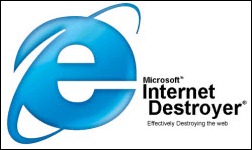
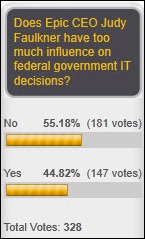
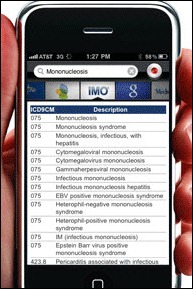
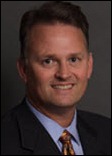
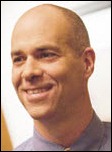












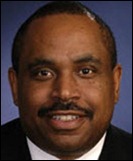

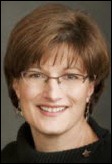
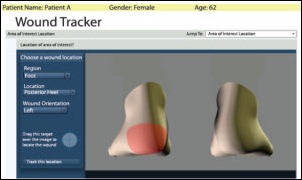


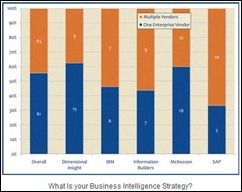



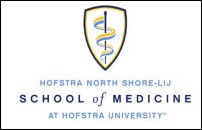

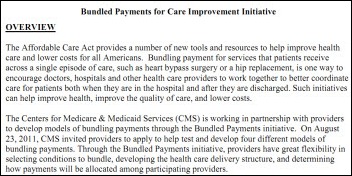

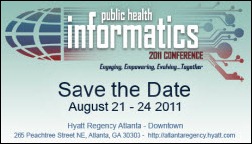















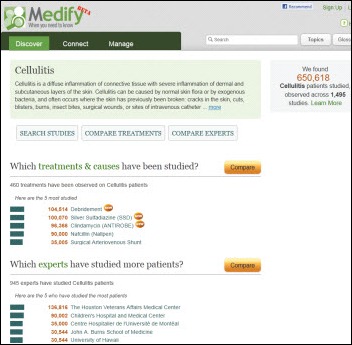
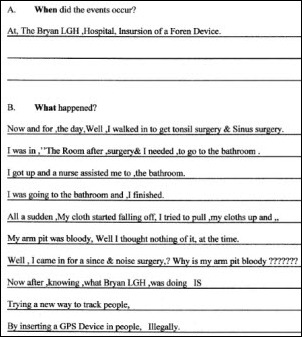

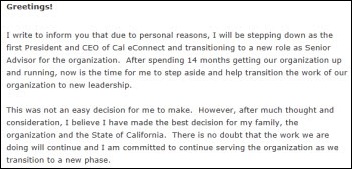

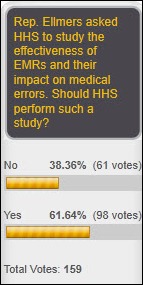
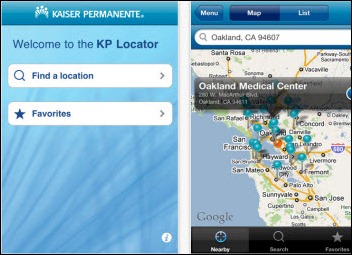



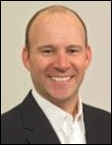







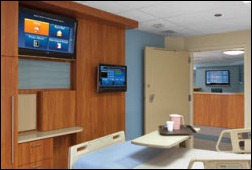











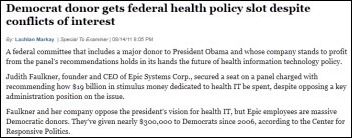







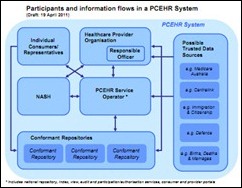

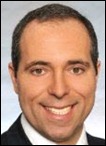
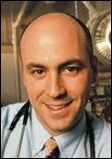









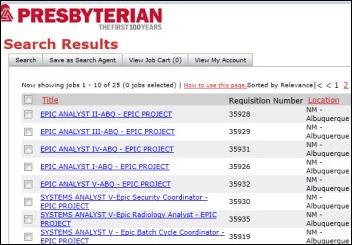

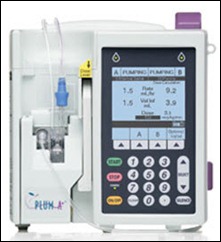

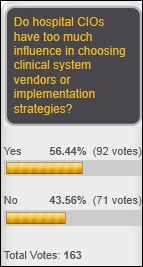







![8-10-2011 2-23-21 PM_thumb[2] 8-10-2011 2-23-21 PM_thumb[2]](http://histalk2.com/wp-content/uploads/2011/08/8-10-2011-2-23-21-PM_thumb2_thumb.jpg)
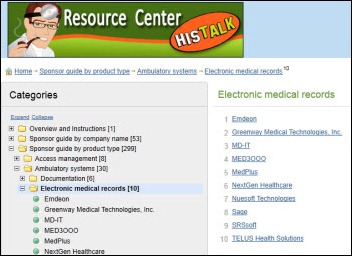


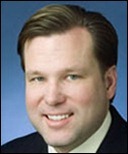

![8-11-2011 3-28-12 PM_thumb[1] 8-11-2011 3-28-12 PM_thumb[1]](http://histalk2.com/wp-content/uploads/2011/08/8-11-2011-3-28-12-PM_thumb1_thumb.jpg)
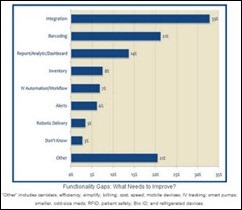

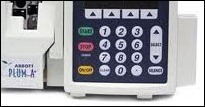

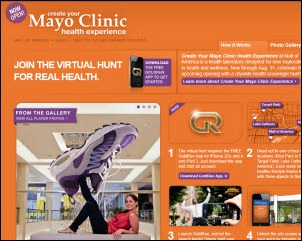




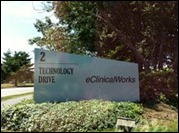









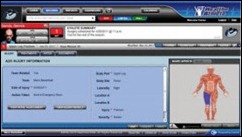







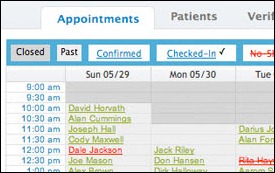
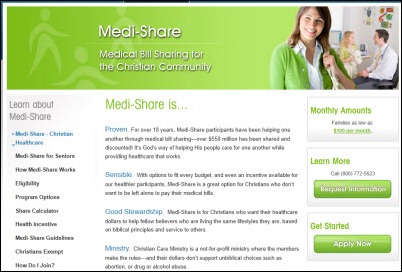
















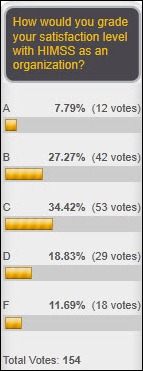


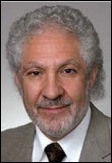
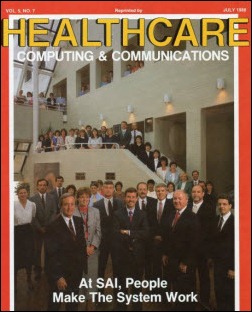
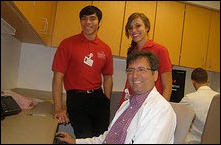
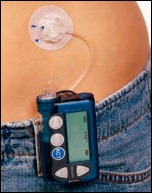


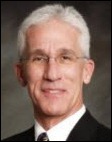




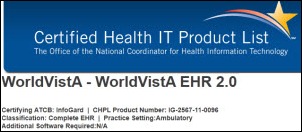
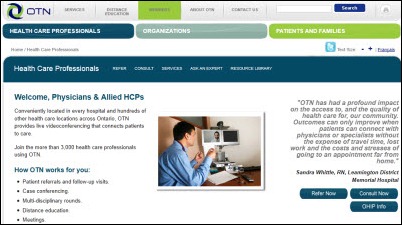
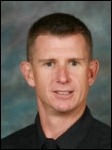




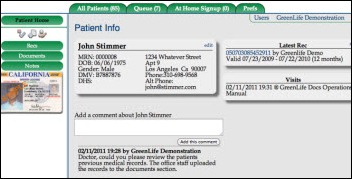






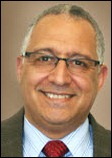



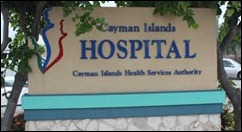



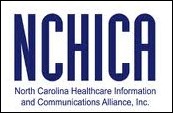








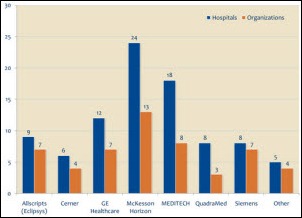
















There was a time when my company went through multiple rebrands. These were relatively minor shifts, but completely unnecessary. It…